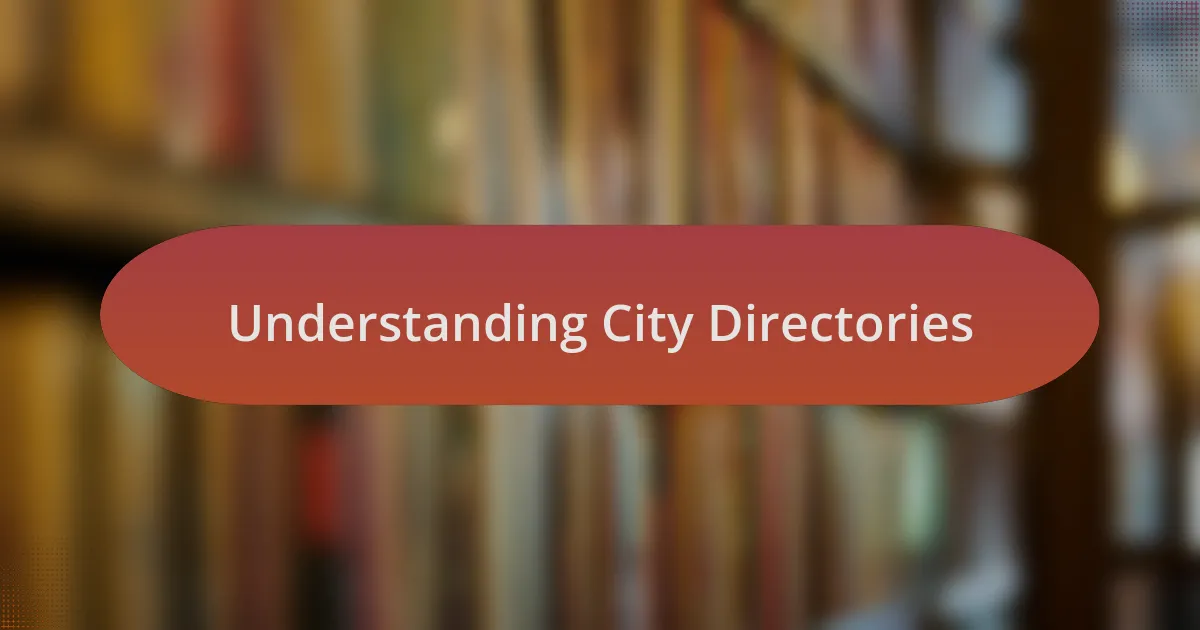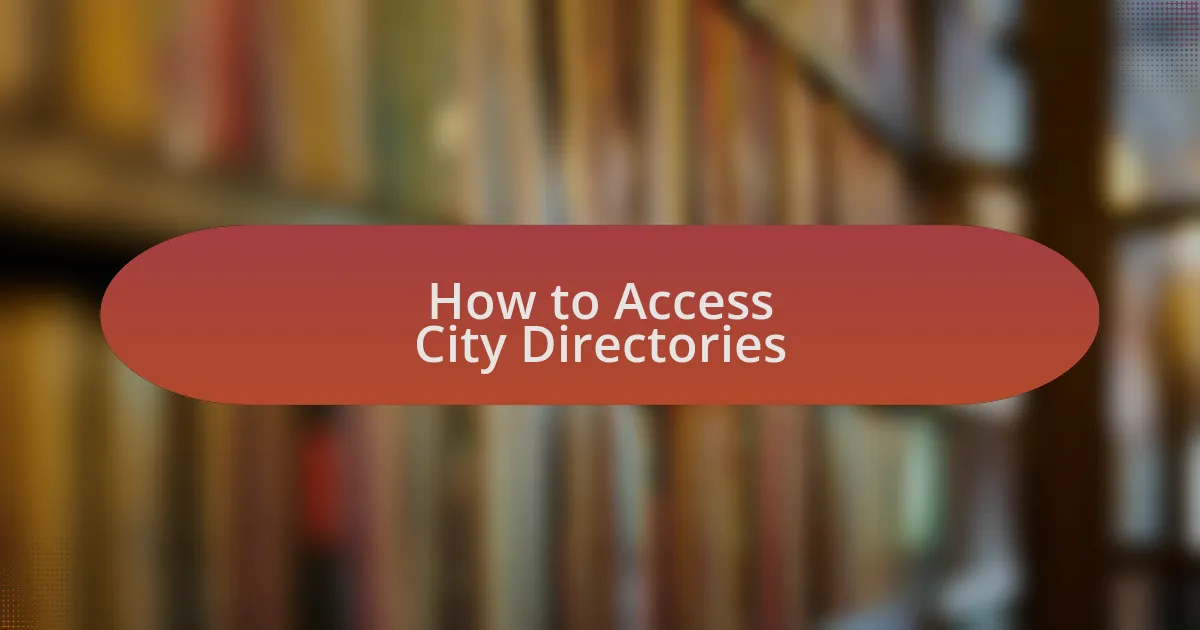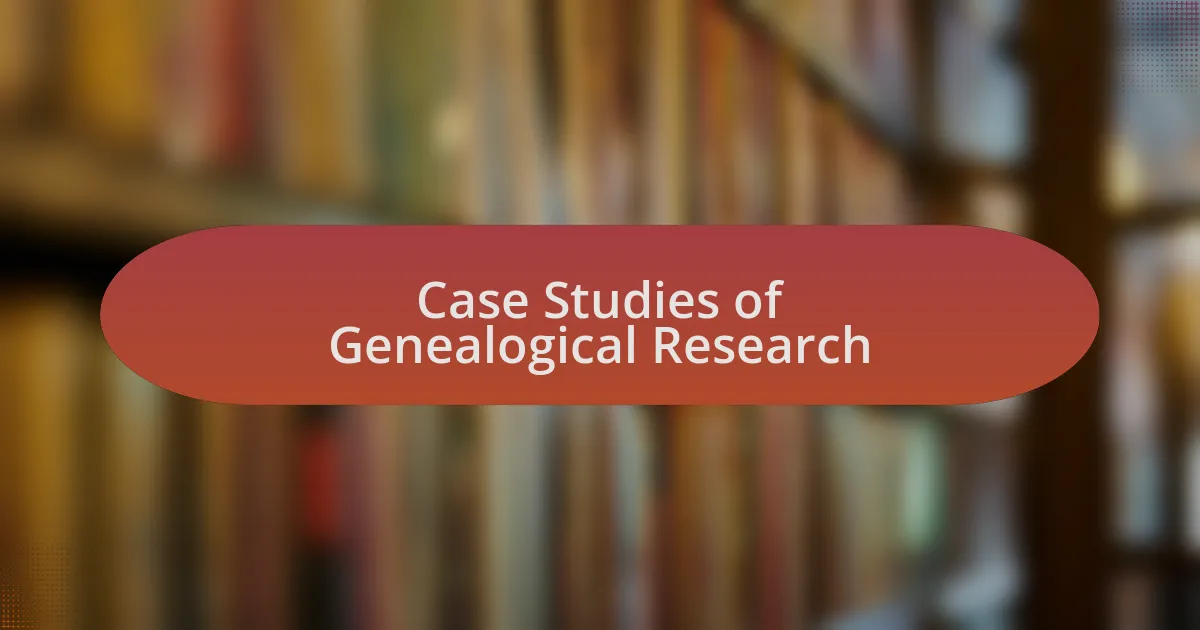Key takeaways:
- City directories serve as comprehensive historical records, offering insights into residents, businesses, and social structures within municipalities.
- Accessing city directories can be done through local libraries, historical societies, and online genealogy websites, making valuable historical data more accessible.
- Researching city directories can reveal connections to ancestors and distant relatives, enriching genealogical pursuits and uncovering family stories.
- City directories can highlight demographic changes and migrations over time, reflecting individual and community histories.

Understanding City Directories
City directories are valuable historical records that can breathe life into our understanding of the past. They serve as comprehensive listings of residents, businesses, and services within a municipality, often providing insights into social structures and local economies. I remember the first time I delved into one; it felt like opening a time capsule where every name held a story waiting to be uncovered.
What truly fascinates me about city directories is their ability to reveal not just the who, but the where and how of people’s lives. For instance, finding my great-grandparents’ names listed in a directory from the early 1900s was a poignant moment. Suddenly, they transformed from mere names in a family tree to real individuals who lived, worked, and contributed to their community. Can you imagine stumbling upon an address that might have been your ancestor’s home, filled with the echoes of their daily lives?
Moreover, these directories do more than connect names to addresses; they provide insights into demographics and migrations over time. A listing may show a family moving from one neighborhood to another, reflecting changes in social status or economic conditions. I often wonder how many conversations and milestones occurred in these very places. By exploring these directories, we can piece together narratives that truly encapsulate our ancestors’ experiences, making history feel personal and alive.

How to Access City Directories
To access city directories, start by checking local libraries or historical societies. Many of them house physical copies that span decades, allowing you to explore various time periods. I remember visiting my local library, where I felt a mix of excitement and nostalgia as I flipped through worn pages filled with names that connected me to my past.
Online resources have also become invaluable in this journey. Websites specializing in genealogy often digitize city directories, making them available at your fingertips. I still recall the thrill of locating my ancestor’s listing in a digital database, immediately connecting with a moment in history that felt almost tangible.
Additionally, don’t overlook university archives or state repositories, which frequently carry extensive collections. These places can surprise you—like the time I uncovered a hidden gem in a university archive that revealed my family’s ties to a historical business. It made me ponder: what stories lie waiting for you to discover in your local directories?

Case Studies of Genealogical Research
City directories can reveal fascinating details about our ancestors’ lives, as I discovered while researching my great-grandfather. His listing in the 1920 directory highlighted not only his occupation but also the addresses he lived at over multiple years. Each address opened a new door, leading me to uncover stories about the neighborhoods he inhabited and the community he was part of. Have you thought about how different places might have influenced your family’s journey?
While diving into city directories for my maternal lineage, I stumbled upon a listing that connected me with a distant cousin I had never known. It was a joy to discover they were also living in the same city, and I felt compelled to reach out. This unexpected connection turned into a rewarding collaboration as we shared family stories, reminding me how city directories can weave a rich tapestry of familial ties. How might city directories help you connect with others in your genealogical journey?
One intriguing case involved searching for a long-lost relative. Through painstakingly comparing names and addresses across various directories, I identified a potential match. Following this lead ultimately led me to family photographs that bore a striking resemblance to my grandmother. I wondered, how many more truths are hidden within those directories, just waiting for someone like you to uncover them?